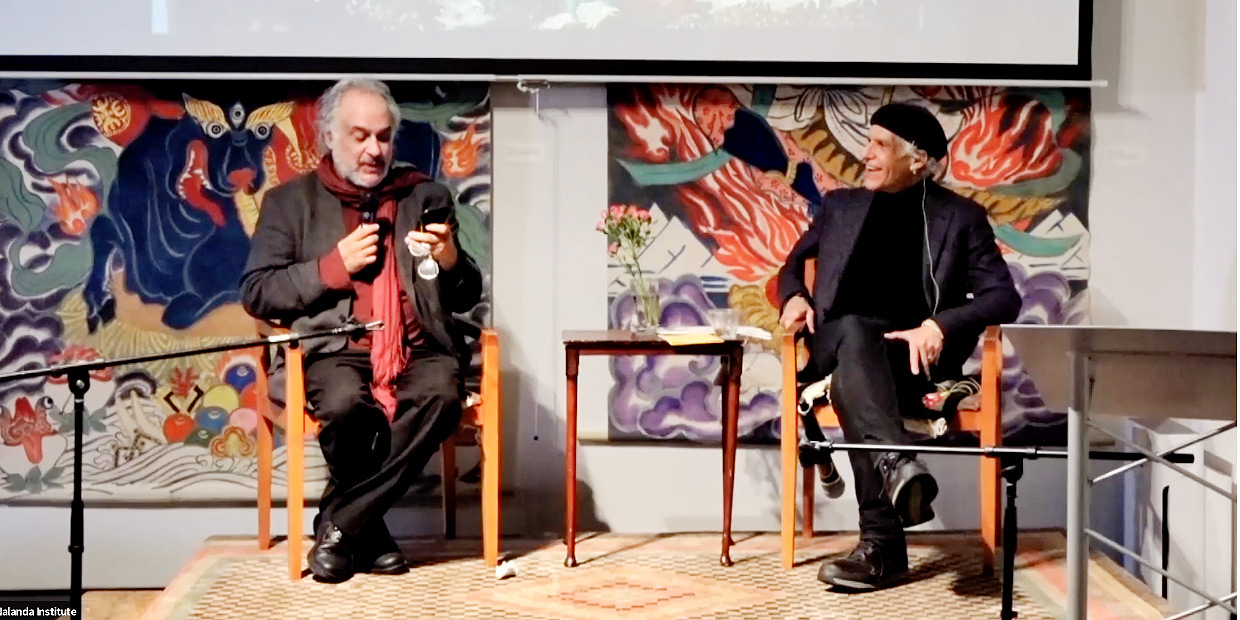by Geri Loizzo
Editor’s note: Read on and then enjoy all of the videos from this special in-person event.
The laws of impermanence teach us that things are changing all the time — a teaching that has been especially apparent in the time of covid. Like all institutions of learning, Nalanda Institute has had to adapt to the change from in-person contact to online classes. For many of us, keeping a feeling of connection and intimacy in the little square boxes of Zoom has posed a challenge, even as the benefits of becoming more accessible to new friends connecting around the globe have been felt and greatly appreciated. While not IRL (in real life), you could say this new accessibility has provided more opportunities to experience a wider variety of the courses and daily meditation offerings IRT (in real time). Still, for some, the yearning for an in-person experience has been brewing for quite some time!
by Elizabeth Rovere

Editor’s Note: Elizabeth Rovere is a longstanding member of our faculty and board who has devoted her career to exploring the fertile intersection between the collective dimension of psychic healing and the spirituality of self-transcendent experience. Find out about Elizabeth’s contemplative reading group, Everyday Epiphanies: When the Ordinary Becomes Extraordinary running May 4, 11, 18.
When I was in graduate school for clinical psychology in the late 1990’s, I worked with refugees and wrote my dissertation on betrayal trauma. Initially, I was in awe of the resilience, perseverance, humility, as well as the gallows humor, of the people I met — Bosnians, Croatians, Serbians, as well as Azerbaijanis and Armenians — the latter two groups, displaced by war wound up together at a make-shift refugee camp
in Moscow’s Red Square. Despite the different nationalities, cultures and religions, and, of course, the war, they got on together, not perfectly, but like they were stuck with each other, as they had been neighbors for years. These people I happened upon in Red Square, in the worst of times, found their common humanity and reestablished a shared trust in order to survive and even thrive after losing their homes and livelihoods. Their deep shared sense of common humanity proved more powerful than all their differences.

